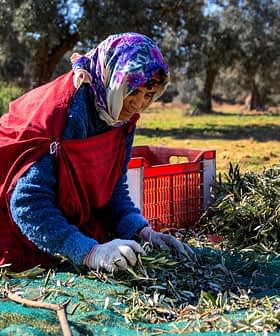In early December 2010, a number of representatives from the Chinese media visited Tunisia. The Tunisian Ministry of Agriculture, Water Resources and Fisheries stated that this was part of a promotional campaign to raise awareness of Tunisian olive oil for the Chinese market. The visit coincided with Tunisia’s picking season and Chinese delegates were invited to witness the production process first hand, to learn more about the varieties Tunisia has to offer, and to experience tasting its olive oils.
Early reports suggest that the visit was a success. In a statement published by Tunisian news agency TAP, the Chinese delegation is said to have been impressed both by Tunisia’s progress in production methods and in the quality of the olive oil.
This move comes as part of an overarching strategy to elevate the position of Tunisian olive oil on the world stage. Tunisia is one of the world’s leading producers of olive oil, but historically a large percentage has been sold in bulk to producers based in other countries. BusinessNews.com.tn notes that in the first ten months of 2010, Tunisia exported 100,000 tons of olive oil while only 7,500 tons of this was packaged.
Most believe the key to the future success of the Tunisian oil industry will be to close this gap and to focus on the quality rather than quantity of the olive oil on offer.
This will be an important consideration for the coming year, particularly as the production of Tunisian olive oil in 2010/2011 is estimated to be between 110 and 120 thousand tons, down from 160 thousand tons last year. In order to combat losses, the Tunisian industry plans to draw on reserves from the 2008/2009 season.
The country is estimated to have 25,000 tons in stocks, which will then be used to raise exports for the current season to roughly 150 thousand tons.
Tunisian producers will be pleased that the Chinese media recognized the quality of its olive oil, as this is one of the key areas in which it can hope to stand out above its Spanish and Italian competitors.
Earlier last year, Lemia Thabet, of the Tunisia Technical Packaging Centre, a company working on the branding and packaging of Tunisian olive oil, told the BBC:
“We face a big hurdle because of the grip Italy has on the market, but we can say that our bottled oil is 100% Tunisian and that counts for a lot in specialty shops. This is something Italy cannot always guarantee.”
Tunisia also faces hurdles with regard to the packaging of its products. As of 2010, the majority of its bottles and stoppers were being purchased directly from Italy, adding further to the cost of production. Production issues aside, emphasis on authenticity and on its long history in the olive oil industry may hold the key to raising Tunisia’s status against competing producers.
Tunisia has an excellent product on its hands and if managed correctly industry experts say it stands a very good chance of competing in emerging markets.








